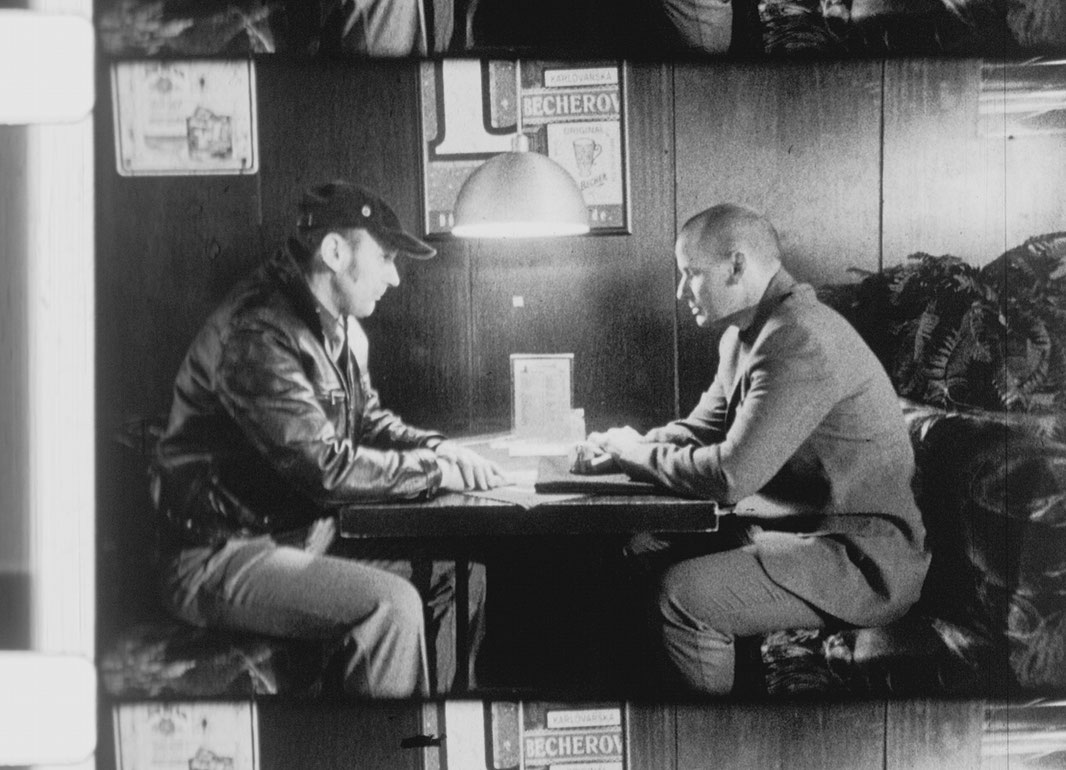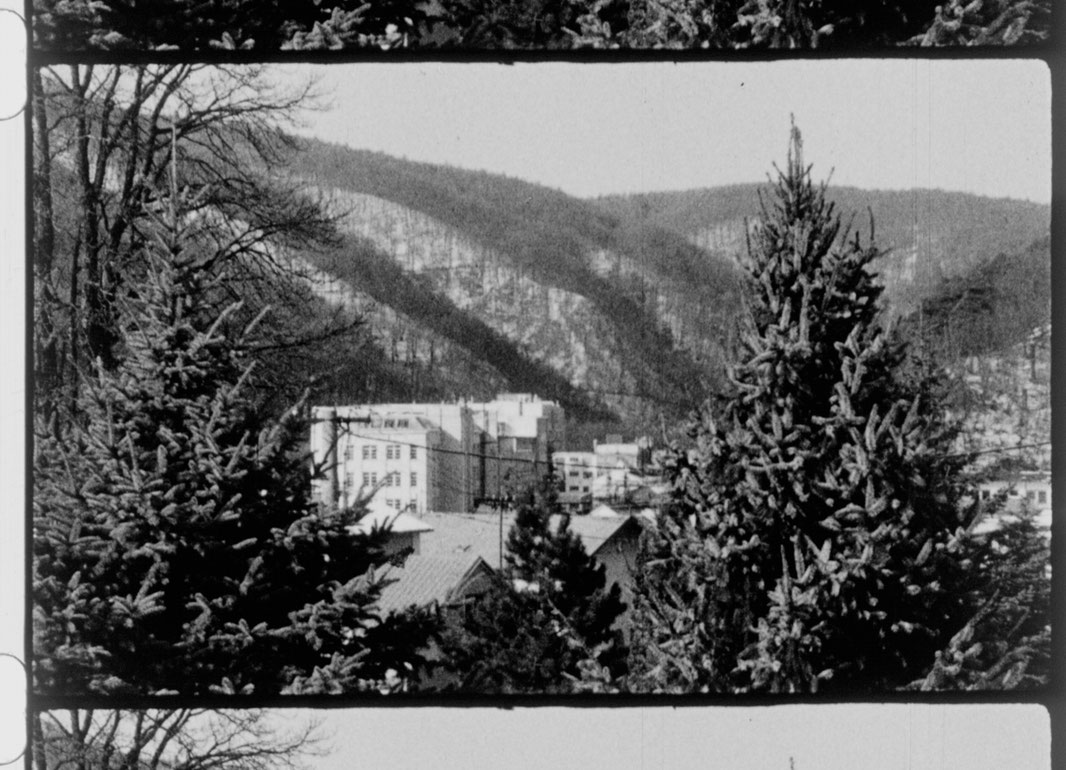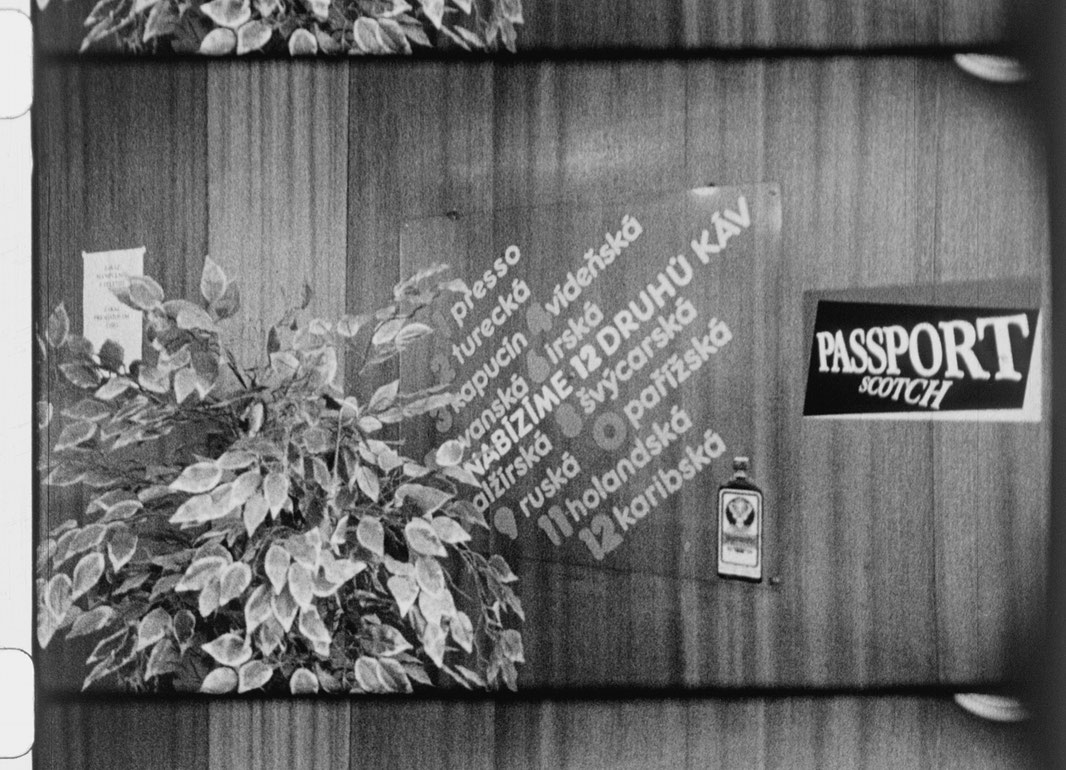Rosa coeli
The film begins abruptly: the first image is a medium-range shot of a man. He is sitting in a train, reading. Then we see a close-up of the man. A first-person narrator says from off-camera: "We convince ourselves that we need it: a memory of childhood." Sounding over everything is a drone, it makes abstract the sounds of a train ride and at the same time opens up a space beyond that which is visible. Acoustically, Josef Dabernig´s Rosa coeli leads us into a cave or a pipe - the chasm of memory, the dark abyss of forgetting. The man returns to the site of his childhood, a Moravian village. His father has died, which is the occasion for his journey. This sets off a whirl of associations; about returning, about the family. It draws childhood stories to the surface and a short time later, the child has grown too old to lose himself in the merry-go-round´s pleasurable spin, an effect similar to that of slivovitz. The narrative is caught in a slip-stream, in a frenzy of memory. As though through a medium, deeper and deeper levels of the past are brought forth by the off-camera voice, from a time long before the main character´s own story.
The images, on the contrary, move on the surface, around the factual nature of the phenomena: the gaze remains fixed on potted plants or on the actors´ signature on a few pieces of paper. When the camera focuses into the depths of the room, or films through a window, we see nothing - nothing behind, nothing out in front: nothing special. The gaze is aimless, what it shows us is unforeseeable: A succession of plain interiors in the styles of the 1950s and 1960s; views of a small industrial town in the fog and cold. Time has frozen. The man sits and waits, waiting to leave.
(Sylvia Szely)
Translation: Lisa Rosenblatt
We experience Josef Dabernig inter alia in Rosa Coeli as a taxi driver in a remote small town with modernist high-rises, accompanying a man returning home. The traveler has made the trip because his father has died; he is staying in a slightly dilapidated hotel with markedly right-angled traits, and dubious decor and entertainment options, and, of course, he has papers to sign.
(Matthias Michalka)
A man. off-screen, recalls his childhood in the Moravian village he is returning to in order to bury his father. His family´s history mirrors the turbulent past of the Central European community over the centuries. There´s talk of war and migration, people and landscapes, the destruction of Rosa coeli convent and the beneficial effects of wine.
(Catalog of the Museum of Contemporary Art in Krakow)
--> ROSA COELI
Rosa coeli
2003
Austria
24 min



